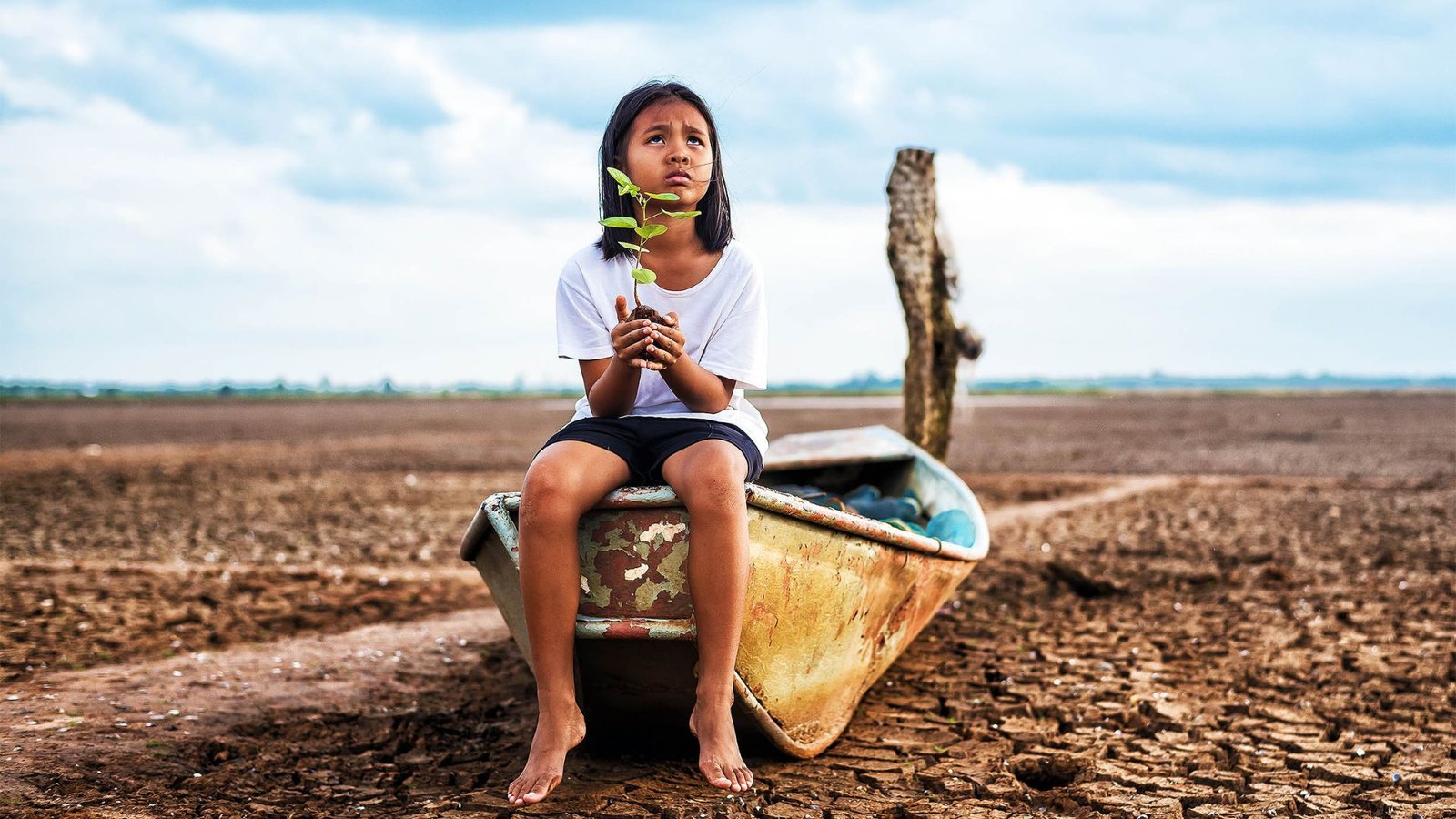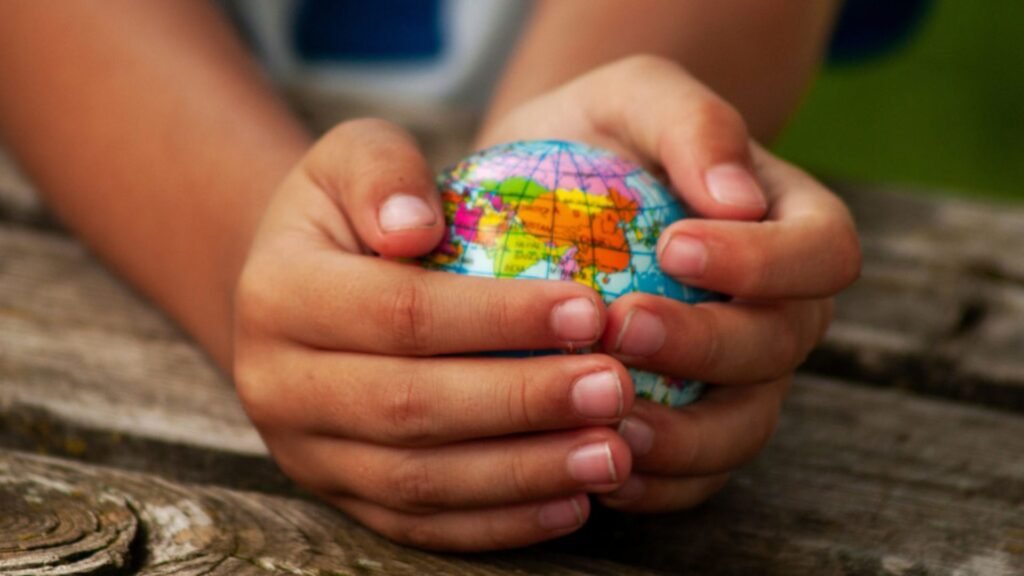Climate change is one of the most significant global challenges of our time, with far-reaching impacts on all aspects of life. Among the most vulnerable to its effects are children, whose health and development can be profoundly affected by the changing environment. This article explores how climate change impacts children’s health and development, highlighting key areas such as physical health, mental well-being, and overall development.

Physical Health Impacts
Increased Exposure to Air Pollution
Climate change exacerbates air pollution, which is particularly harmful to children. Rising temperatures can increase the concentration of ground-level ozone and other pollutants, leading to respiratory issues such as asthma and bronchitis. Children’s developing lungs are more susceptible to damage from these pollutants, which can have long-term effects on their respiratory health and overall physical development.
Heat-Related Illnesses
As global temperatures rise, children are increasingly at risk of heat-related illnesses, including heat exhaustion and heatstroke. Children are less able to regulate their body temperature compared to adults, making them more vulnerable to extreme heat. Prolonged exposure to high temperatures can also exacerbate existing health conditions, such as cardiovascular and respiratory diseases, further endangering children’s health.
Increased Spread of Infectious Diseases
Climate change influences the spread of infectious diseases, particularly those transmitted by vectors like mosquitoes and ticks. Warmer temperatures and altered precipitation patterns create favorable conditions for the proliferation of these vectors, leading to the spread of diseases such as malaria, dengue fever, and Lyme disease. Children, especially in low-income regions, are at higher risk of contracting these diseases, which can have severe consequences for their health and development.
Malnutrition and Food Insecurity
Climate change impacts agricultural production, leading to food shortages and increased food prices. Droughts, floods, and other extreme weather events can disrupt food supply chains, making it difficult for families to access nutritious food. Malnutrition during childhood can lead to stunted growth, weakened immune systems, and cognitive impairments, all of which hinder a child’s physical and mental development.
Mental Health and Psychological Impacts
Stress and Anxiety
Climate change and its associated impacts, such as natural disasters, displacement, and food insecurity, can cause significant stress and anxiety in children. The uncertainty and fear of living in a changing and increasingly hostile environment can lead to chronic stress, which can affect a child’s mental health and well-being. Prolonged stress can also impair cognitive function and emotional regulation, making it difficult for children to thrive academically and socially.
Trauma from Extreme Weather Events
Children who experience extreme weather events, such as hurricanes, floods, or wildfires, are at risk of developing trauma-related mental health issues. The loss of homes, loved ones, and a sense of security can lead to conditions such as post-traumatic stress disorder (PTSD), depression, and anxiety. Without proper support and intervention, these mental health issues can have long-lasting effects on a child’s development and quality of life.
Disruption of Social and Educational Opportunities
Climate change can disrupt children’s education and social development by displacing families, damaging schools, and causing communities to fragment. The loss of stable education and social networks can hinder children’s cognitive and emotional development. Moreover, children who are displaced by climate-related events may struggle to adapt to new environments, further impacting their mental health and development.
Impact on Developmental Milestones
Cognitive Development
Malnutrition, exposure to toxins, and chronic stress—often exacerbated by climate change—can impair cognitive development in children. Proper nutrition, a safe environment, and emotional well-being are crucial for brain development, particularly in the early years of life. When these are compromised, children may struggle with learning, memory, and problem-solving skills, which can have long-term consequences for their educational attainment and future opportunities.
Physical Growth and Motor Development
Climate-related factors, such as poor air quality, malnutrition, and limited access to safe outdoor spaces, can hinder children’s physical growth and motor development. Children need adequate nutrition and opportunities for physical activity to develop strong muscles, bones, and motor skills. When these needs are not met due to environmental challenges, children’s physical development may be stunted, affecting their overall health and well-being.
Social and Emotional Development
The social and emotional development of children can be severely impacted by the effects of climate change. Displacement, loss of community, and the trauma of living through extreme weather events can disrupt the formation of stable relationships and emotional security. These disruptions can lead to difficulties in forming healthy relationships, managing emotions, and developing a strong sense of self-worth, all of which are critical for healthy development.
Conclusion
The impact of climate change on children’s health and development is profound and far-reaching. From physical health issues, such as respiratory problems and malnutrition, to mental health challenges like stress and trauma, the effects of a changing climate can significantly hinder a child’s ability to thrive. Addressing these challenges requires a concerted effort from governments, communities, and international organizations to implement policies and initiatives that protect and support the most vulnerable. By taking action now, we can help safeguard the health and development of future generations in the face of climate change.

